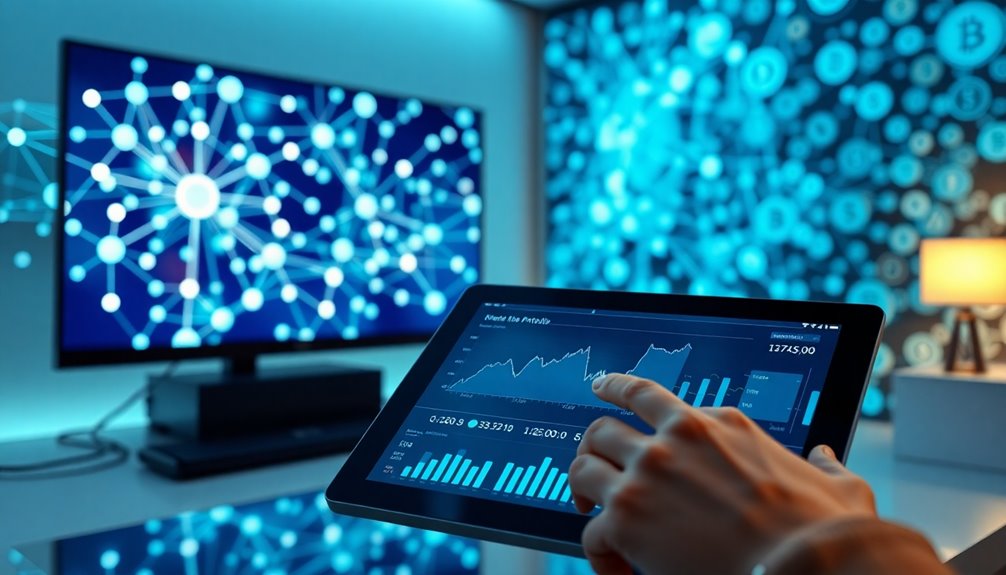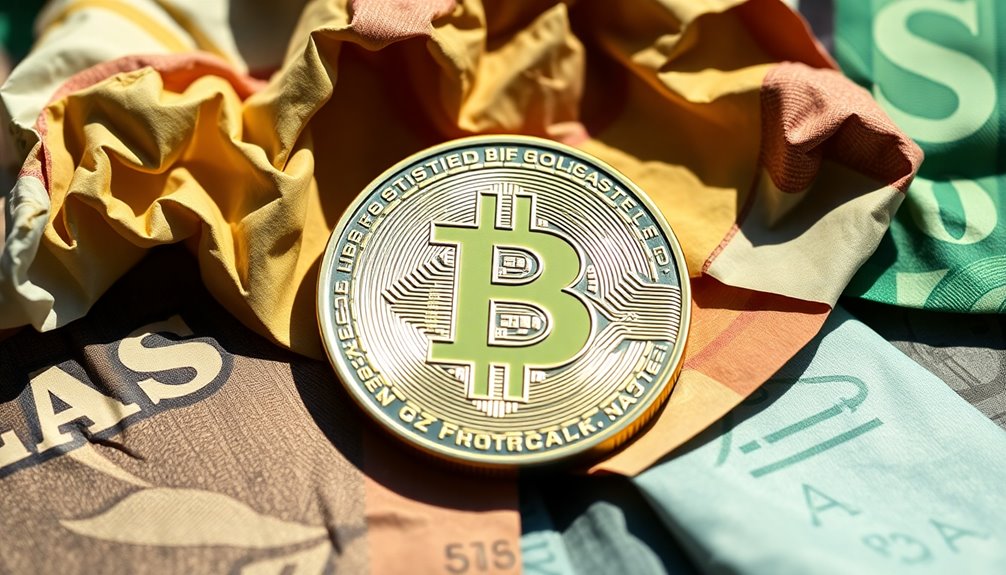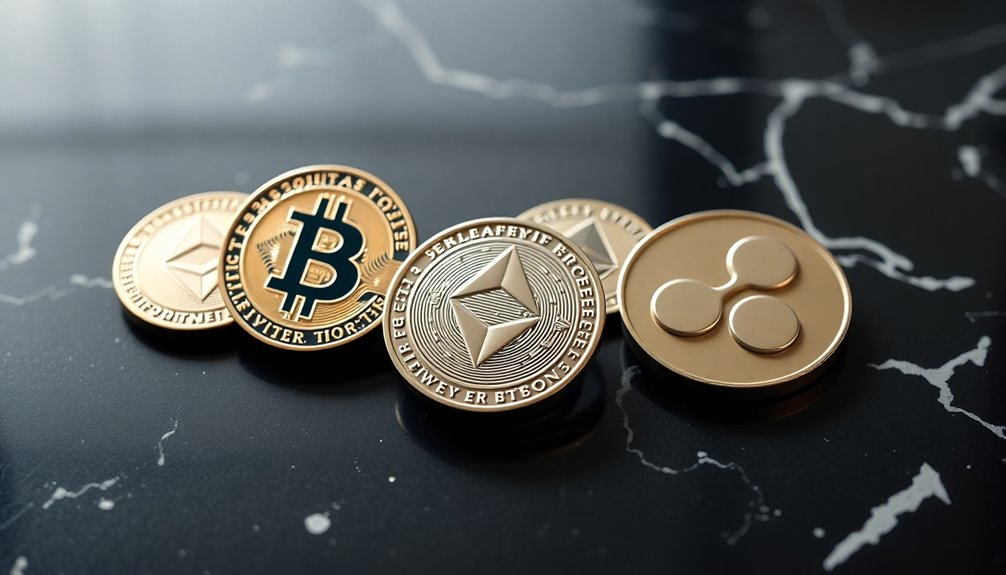Cryptocurrency portals are essential for anyone wanting to trade digital currencies easily. These platforms let you buy, sell, and exchange cryptocurrencies like Bitcoin and Ethereum with user-friendly interfaces. Many, like Crypto.com and BitMart, also offer additional services such as NFT trading and credit cards. Security is a top priority, with features like two-factor authentication and cold storage to keep your assets safe. Plus, user verification steps ensure compliance and protect against fraud. If you're curious about various functionalities and the latest trends in these portals, there's much more to uncover.
Key Takeaways
- Cryptocurrency portals facilitate the buying, selling, and trading of digital currencies, offering various features tailored for users.
- These platforms provide advanced trading options, including spot and futures trading, with varying support for different cryptocurrencies.
- Security measures such as multi-factor authentication, cold storage, and regular audits ensure the protection of user assets.
- User verification processes comply with AML and KYC regulations, enhancing security and preventing fraud.
- Many portals incorporate user-friendly interfaces and cross-chain transaction capabilities, catering to both beginners and experienced traders.
Overview of Cryptocurrency Portals
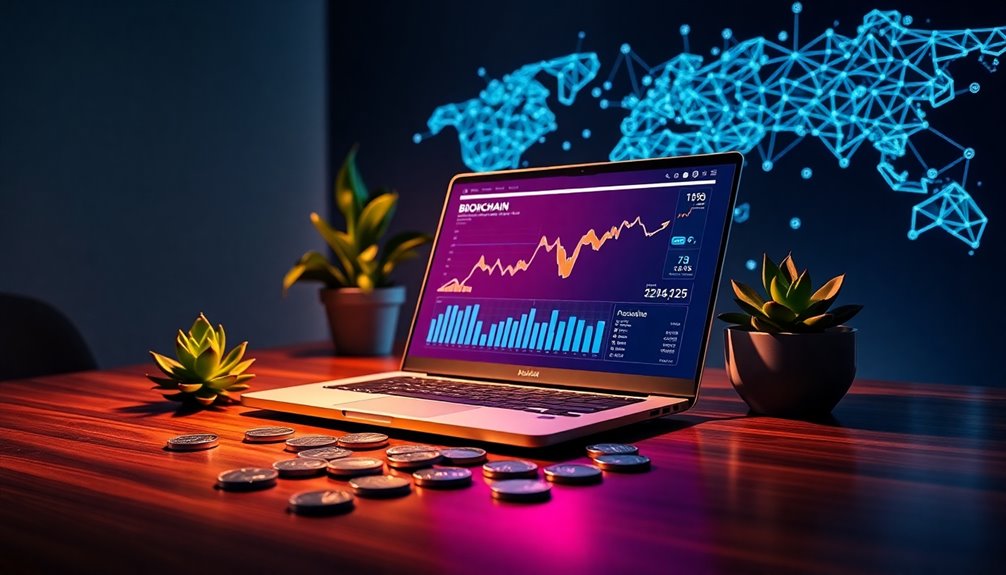
Cryptocurrency portals are essential platforms that facilitate the buying, selling, and trading of digital currencies. These platforms vary significantly, catering to different needs and preferences.
For instance, BitMart offers spot and futures trading, while Bybit supports over 100 cryptocurrencies and features auto-investing. If you're looking for a comprehensive app, Crypto.com provides trading, NFTs, and cash-back credit cards.
Poloniex stands out with more than 400 currencies and a Rewards Center for active users. eToro focuses on social trading and ready-to-go portfolios.
A user-friendly interface is crucial, as intuitive designs and responsive performance enhance your experience. With proper security measures like two-factor authentication and cold storage, you can feel more secure while navigating these dynamic platforms.
Key Features of Cryptocurrency Portals
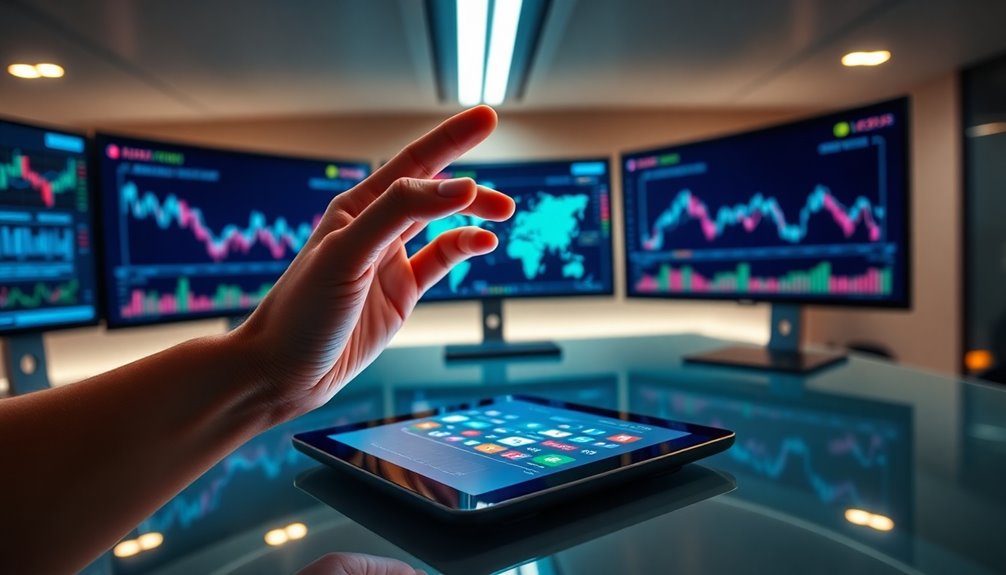
When exploring cryptocurrency portals, you'll find several key features that enhance your trading experience and ensure seamless interactions with digital assets.
Cross-chain transaction capabilities allow for trustless swaps across various networks, giving you access to global liquidity pools and better investment opportunities.
The user interface is designed for both beginners and pros, featuring intuitive navigation that simplifies managing your digital currencies. Additionally, the integration of Layer 2 solutions helps to enhance transaction speeds and reduce costs.
With a universal wallet supporting multiple cryptocurrencies and integration with over 200 games, you can diversify your portfolio while enjoying gaming options.
Scalability and accessibility are prioritized through peer-to-peer networks and Layer 2 solutions, ensuring lower costs and advanced chart tools for market analysis.
These features make your cryptocurrency journey smoother and more efficient.
Security Measures for Cryptocurrency Portals
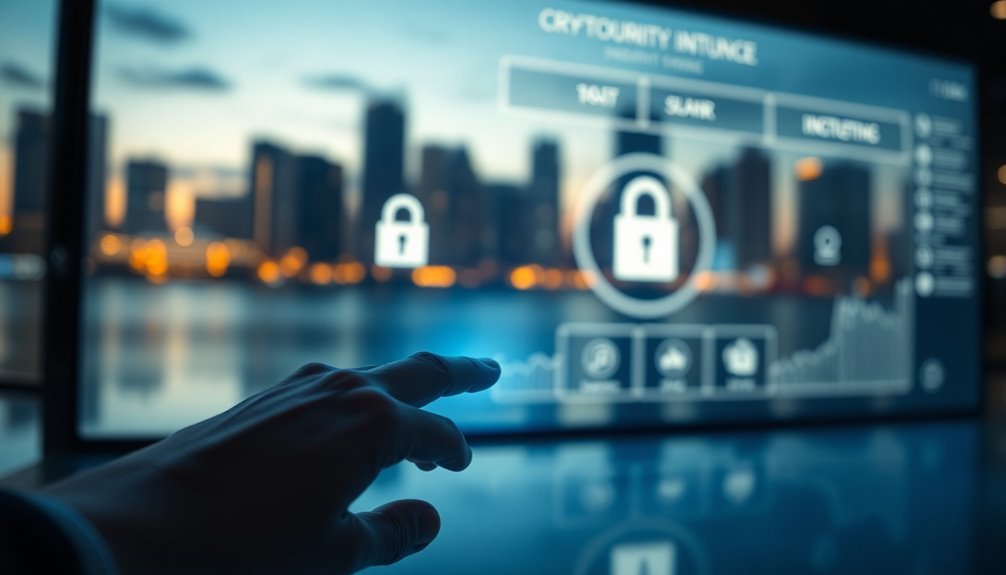
Cryptocurrency portals implement several robust security measures to protect your assets. Multi-factor authentication (MFA) enhances protection by requiring multiple verification methods, while two-factor authentication (2FA) sends a time-sensitive code to your device. Utilizing wallet-based login verifies ownership of your crypto assets. Secure storage options, like cold storage and hardware wallets, keep your funds offline and safe from hackers. Additionally, regular security audits help identify and resolve vulnerabilities to maintain security. Regular security audits and DDoS protection maintain the platform's reliability. Additionally, real-time transaction monitoring helps detect unusual activity, ensuring your transactions stay secure.
User Verification and Compliance

To protect your investments and ensure compliance with regulations, user verification is essential in cryptocurrency portals.
You'll undergo processes like document verification, where your government-issued ID is checked for authenticity. Biometric data, such as facial recognition or fingerprint scans, confirms you're physically present, while liveness detection ensures you're not using photos or deepfakes. The importance of reliable identity proof is underscored by its role in preventing fraud and money laundering. Additionally, implementing secure storage solutions for your cryptocurrency, such as a Bitcoin IRA wallet, can further safeguard your investments. Proof of residence, like utility bills, helps meet location-based regulations. Compliance with AML and KYC requirements is crucial, as it helps prevent money laundering and terrorist financing.
Each portal may offer tiered verification levels, granting access to various features based on the information provided. By completing these steps, you enhance your security and contribute to a safer trading environment.
Network and Infrastructure Security
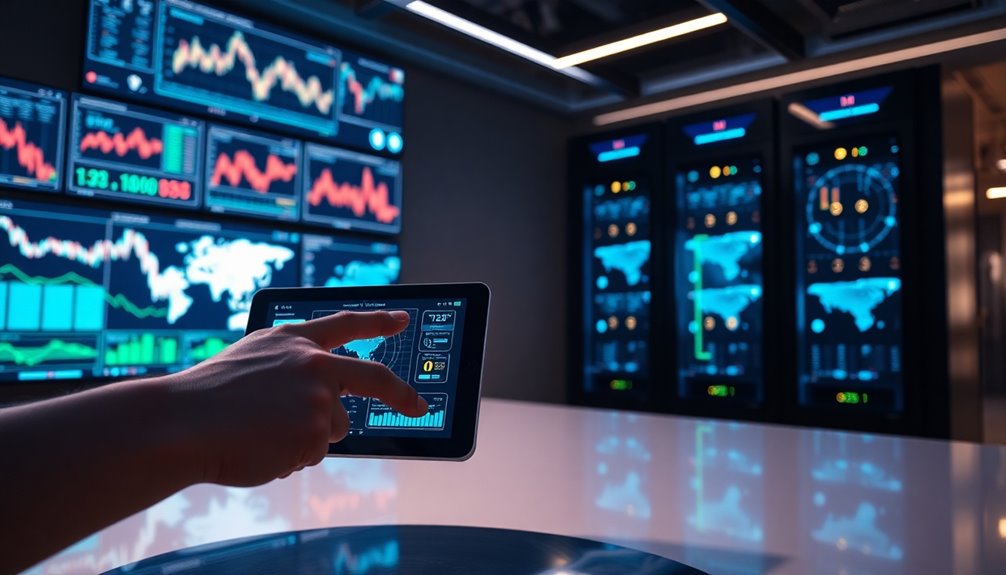
While ensuring your assets remain secure, the network and infrastructure of cryptocurrency portals play a crucial role in protecting your transactions. These portals utilize decentralized architecture, allowing peer-to-peer swaps across multiple blockchains without reliance on central authorities.
By implementing layer-2 protocols, they enhance scalability and security, inheriting Bitcoin's robust features. Atomic swaps and proof-of-work mechanisms further guarantee trustless execution and integrity.
To combat potential threats, the portals employ DDoS protection, data encryption, and continuous network monitoring. They also conduct regular security audits to identify vulnerabilities.
With measures against code attacks and network partitioning, these infrastructures maintain stability and functionality. A well-crafted introduction thus, you can feel confident that your transactions are secure in this decentralized ecosystem.
Smart Contract and Token Security

Smart contracts represent a revolutionary approach to executing agreements in the blockchain world, but their security is paramount to safeguarding your assets.
To ensure your contracts are secure, follow rigorous coding practices. Use established standards and formal verification tools to catch any flaws before deployment. Comprehensive auditing by experienced professionals is crucial; it helps identify vulnerabilities at multiple code levels. Regular security audits are essential to mitigate vulnerabilities in smart contracts and enhance overall system integrity.
You should also test your smart contracts extensively to confirm they function correctly. When deploying, manage your keys securely and implement strong encryption protocols.
Continuous monitoring for vulnerabilities and regular updates are essential to maintain security. Finally, stay aware of external threats and comply with regulatory requirements to protect against attacks that could jeopardize your investments.
Backup and Recovery Strategies
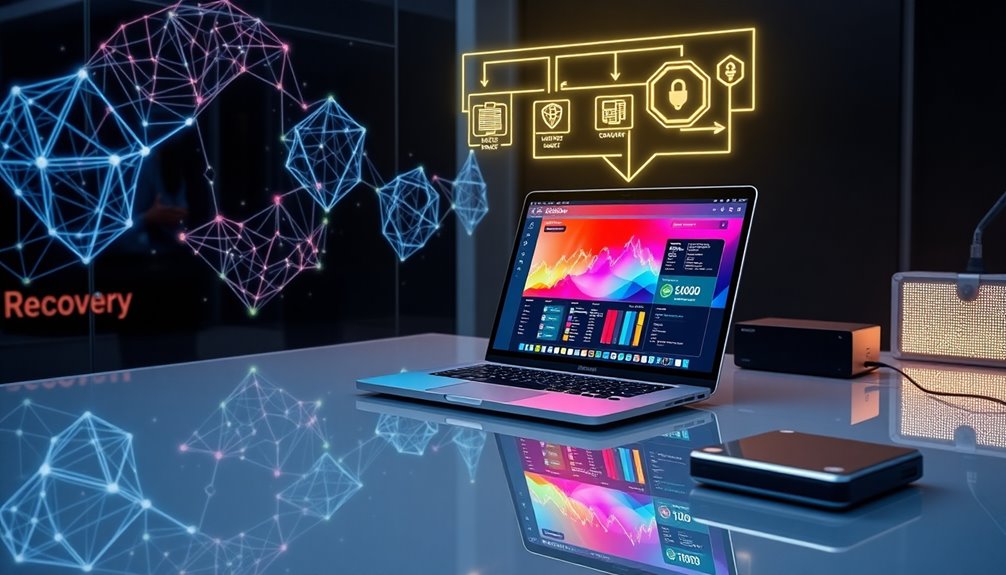
Ensuring the security of your smart contracts is just the first step in protecting your cryptocurrency investments—having effective backup and recovery strategies is equally important.
Start with digital backups by storing your wallet information on external media or secure online services like Google Drive. Use USB sticks or external hard drives, but keep them safe from physical damage. Regular backups guard against theft, hacking, and hardware failures.
Consider cloud storage with strong encryption and 2FA for added security. Don't forget paper backups; write down your recovery phrases and store them in fireproof safes.
Regularly update and test your backups to ensure they're functional. Lastly, document your recovery process clearly and verify the integrity of your files to guarantee reliable access when needed.
Frequently Asked Questions
How Do I Choose the Right Cryptocurrency Portal for My Needs?
Choosing the right cryptocurrency portal depends on your specific needs.
Start by identifying what features matter most to you, like portfolio management or tax calculations. Check for user-friendly interfaces and mobile compatibility, ensuring you can access your assets easily.
Don't forget to consider security measures, such as two-factor authentication and cold storage.
Lastly, evaluate the platform's integrations with exchanges and wallets to make tracking your investments seamless.
What Fees Are Typically Associated With Using Cryptocurrency Portals?
When you use cryptocurrency portals, you'll encounter various fees. These often include maker and taker fees, which can range from 0% to 0.5%.
Additionally, depositing and withdrawing fiat usually costs more than crypto transactions. Watch out for hidden fees like spreads and currency conversion charges.
Some exchanges also impose account or maintenance fees. Always check the specific fee structure of each portal to avoid surprises and ensure you're getting the best deal.
Can I Access Cryptocurrency Portals From Any Country?
You can't access all cryptocurrency portals from any country. Many platforms impose geographic restrictions based on local regulations.
For example, exchanges like Coinbase and Bybit don't serve US residents due to compliance issues.
However, decentralized exchanges like Uniswap and PancakeSwap have no such restrictions, though you still need to follow your local laws.
Always check the specific service's availability in your country before trying to access it.
What Types of Cryptocurrencies Can I Trade on These Portals?
You can trade a wide variety of cryptocurrencies on these portals. Major platforms like Coinbase and Binance support popular coins like Bitcoin and Ethereum, along with thousands of altcoins.
You'll find stablecoins such as USDC and DAI, as well as unique tokens across various networks. Whether you're interested in trading established cryptocurrencies or exploring newer options, these portals offer diverse choices to suit your trading preferences.
How Can I Increase My Security While Using a Cryptocurrency Portal?
To increase your security while using a cryptocurrency portal, start by using strong, unique passwords for each account.
Enable two-factor authentication (2FA) wherever possible.
Consider using a hardware wallet for offline storage of your assets.
Stay vigilant against phishing scams by never clicking on suspicious links.
Regularly monitor your accounts for unusual activity, and keep your software updated to protect against vulnerabilities.
Lastly, back up your wallets securely to safeguard your funds.
Conclusion
In conclusion, understanding cryptocurrency portals is essential for navigating the digital currency landscape. By recognizing key features, security measures, and compliance requirements, you can make informed decisions about your investments. Prioritizing network security, smart contract integrity, and effective backup strategies will help safeguard your assets. Remember, staying informed and proactive in protecting your investments is vital in this ever-evolving space. Embrace the potential of cryptocurrency, but always prioritize safety and security.
